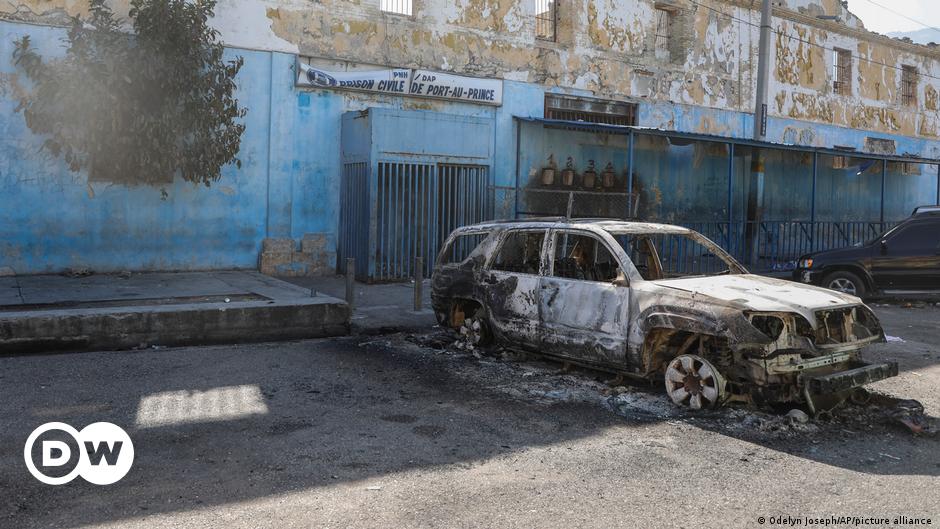
[ad_1]
Chaos ensued in Haiti’s capital Port-au-Prince on Sunday, with connectivity disruptions following an attack on the country’s main penitentiary which left most of its inmates at large.
Gang leader Jimmy Cherizier, a former police officer, has claimed responsibility for a surge in violent attacks which have engulfed the country recently. He said the aim was to oust Prime Minister Ariel Henry.
Henry was in the meantime in Kenya to shore up security support in facing the gang violence. Due for return, the prime minister’s whereabouts remain unknown.
What do we know about the jailbreak?
The latest in the string of violence was the attack on the country’s largest prison, which left at least three prisoners killed, apparently as they tried to escape.
Prison gates were open on Sunday, with no security personnel in sight. Many families of prisoners held at the facility rushed there to check on loved ones.
The facility, built to hold 700 prisoners, had some 3,687 inmates locked up as of February last year, as per rights group RNDDH. Less than 100 are believed to still be inside the facility after the attack.
They included 18 retired Colombian soldiers accused of working as mercenaries in the July 2021 assassination of Haitian President Jovenel Moïse.
In a statement on social media on Sunday, the Ministry of Communication said the attack on the prison “sought to release those who were imprisoned for acts of murder, kidnapping, and other serious crimes.”
The ministry acknowledged the failure of police forces to prevent the escape of many prisoners, saying the attack left many inmates as well as prison staff injured.
Haiti’s growing gang violence
The armed clashes between gangs and police come on the heels of a flurry of violent protests that were simmering for sometime but ramped up in the last few days as Henry visited Kenya.
Henry, who came to power after Moise’s assassination, had previously said that he would step down by early February.
He said later that security must first be re-established to ensure free and fair elections.
According to the UN, Haiti’s National Police has roughly 9,000 officers to provide security for the country’s more than 11 million inhabitants.
The Kenyan policing mission followed months of failed efforts to find a country willing to lead the operation.
UN and Western-led deployments are viewed skeptically in Haiti, following past cases of child sexual abuse and a 2010 cholera outbreak that was traced back to a barracks in a country that had previously eradicated the disease.
rmt/wd (AP, Reuters)
[ad_2]
Source link







